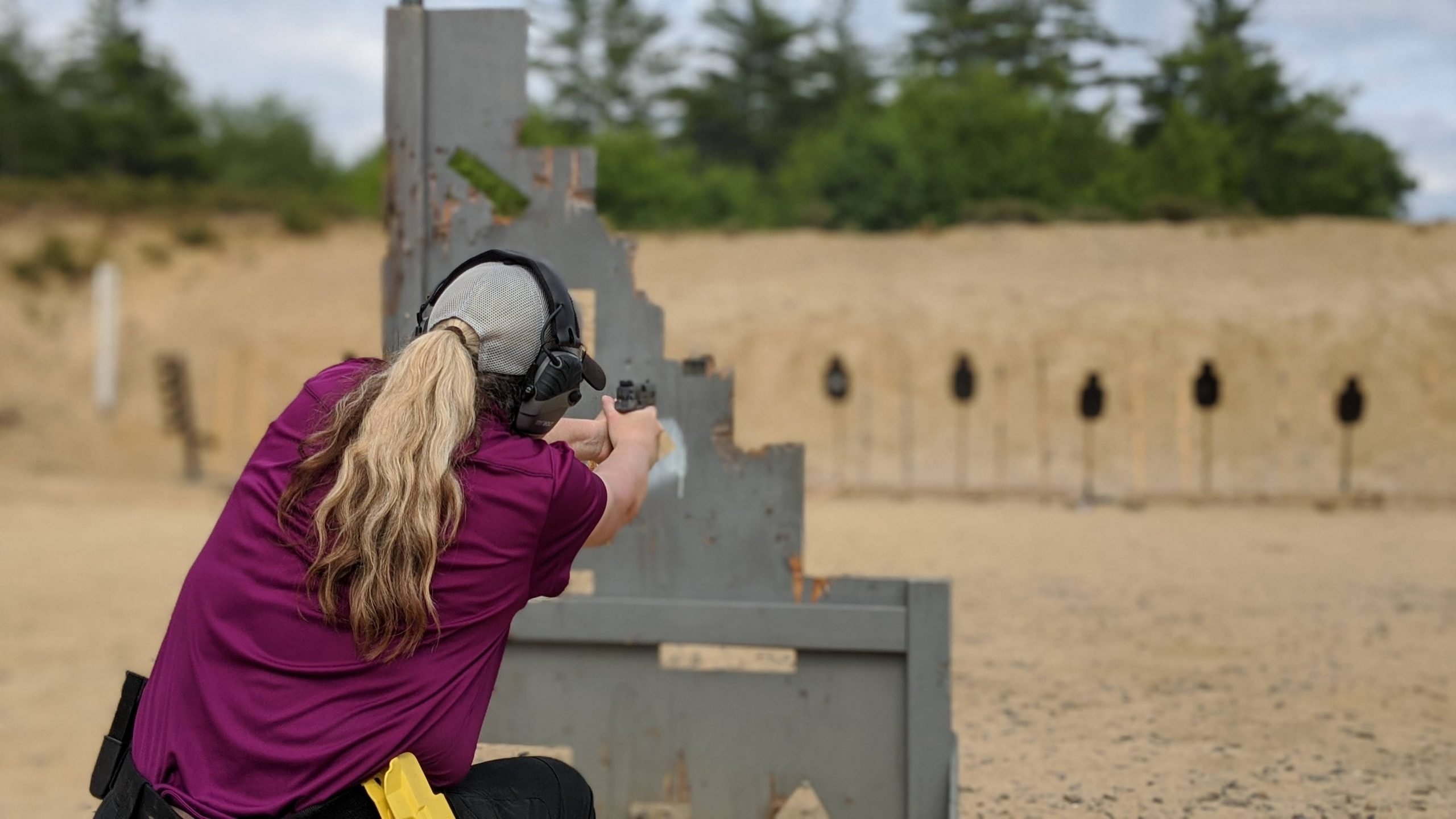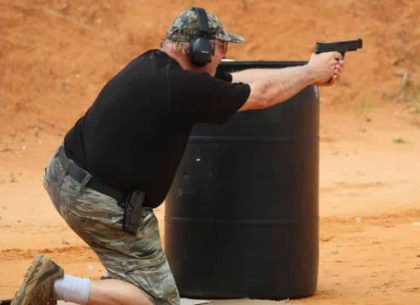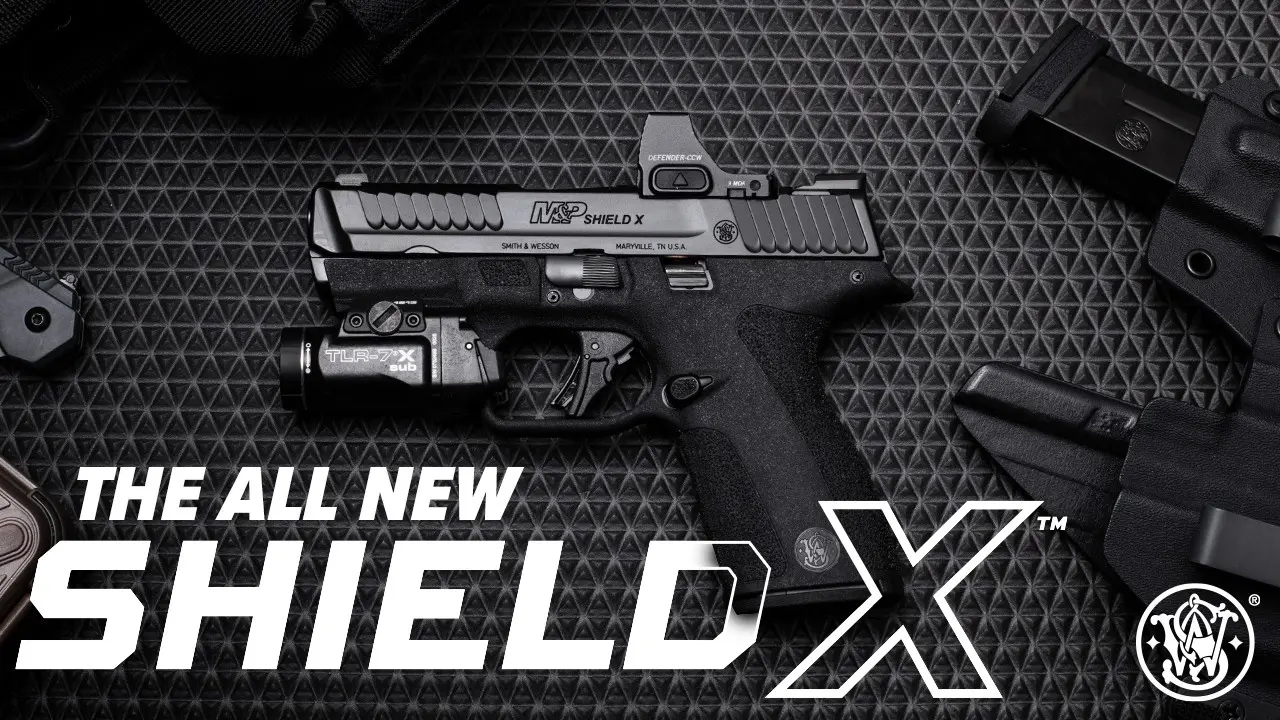How to identify, hide behind, and shoot from barriers.
![]()
![]()
If you’re ever in a gunfight – and we sincerely hope that never happens, but we also hope you’re prepared if it ever does – you will need to get off the X and find cover or concealment. It’s a valuable life-saving skill that can change the outcome of the gunfight in your favor. Using objects around you as protection can make the difference between dying or living to tell the story.
Difference between cover and concealment
Let’s start with a couple of critical definitions. Cover and concealment are not the same things and must be treated differently. “Cover” is a barrier that not only visibly hides you but is also strong enough to stop rounds from reaching you. A good example is a wall made of concrete or thick steel. “Concealment” also hides you but is not strong enough to stop bullets from penetrating. Standard walls inside homes are a good example. Bullets will rip right through them. Same thing for car doors.
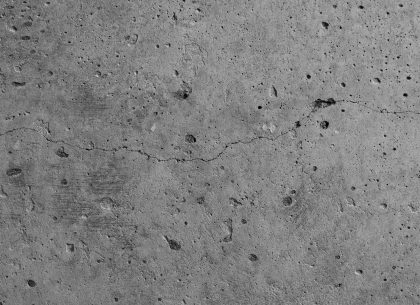
Slide step toward the barrier
Once you have identified a good source of cover or concealment, the next step is to reach it and get behind it. While this may sound simple (how hard can it be to step behind a barrier?), it requires a certain level of skill and training. The challenge is identifying the barrier and getting behind it without falling or tripping over an object on the way while keeping your eye on the target.
Often the best way to move is with a slide step that moves you sideways toward the barrier while keeping you faced toward the target. Watching your target the whole way helps judge what action, if any, to take once on your way and once you reach the barrier. Do you need to return fire on the move? Can you hold your fire and move faster? Full knowledge of the situation helps decision-making.
Shoot around it without revealing too much
Once you are behind the barrier, you may still need to return fire and continue to engage the threat if the fight’s not over. But you still want to protect yourself. Unfortunately, there is just no way to effectively deploy your gun without revealing at least part of your body. The key is to show as little as possible.
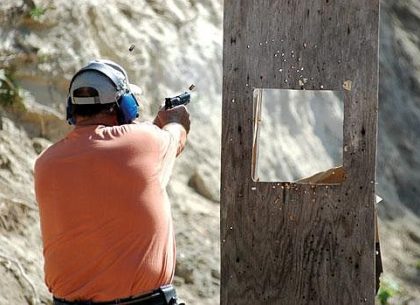
Working from top to bottom only reveal what you need to, starting with your head. Your eyes need to see the threat, so part of your head will have to stick out. The bad news is your head is a terrible place to get shot. The good news is your assailant will have to be either incredibly good or incredibly lucky to hit it if you only reveal the minimum you need to spot the threat.
Pay close attention to your feet and legs, careful not to reveal too much of them from behind the barrier. Train to keep your balance without bringing your feet out from behind the barrier at all. Your best bet is to use the peek-around method, where you only reveal a sliver of your head and body as needed to assess the scene and bring the gun up to bear.
Work away from the barrier – don’t snuggle up against it
As tempting as it may be to hug the back edge of the barrier because it seems safer, you’re much better off backing away from it, if possible. Conventional wisdom leads us to believe the barrier is only effective if we get close to it. The reality, however, is that the protective nature of the barrier does not change no matter how close or far away we are from it. The barrier is still the barrier. But what does change are our shooting angle and the size of a target we become to the attacker.
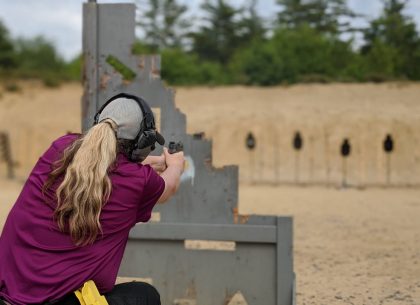
You can get a more comprehensive view of your surroundings and see the threat better by backing off the barrier. This deeper angle also gives you more engagement options. Third, by being farther away from the threat, you make a smaller target for the bad guy and thus harder to hit. Finally, it can open more options for mobility should you need to disengage and vacate the scene.
Practice
So how do you get better at this skill since it’s not one you can practice at a typical box range? There are two ways. One is to find a dynamic range, typically outdoors but not always, that will let you move around. Set up barrels, portable wood walls, or mesh barricades to simulate real obstacles and practice shooting from behind them. Start from an open position, call a threat, and then react by taking advantage of the cover and concealment.
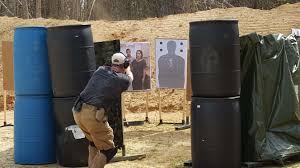
Second – and this might be a bit more challenging but possible – is to borrow a shoot house that is ballistic rated for live fire or non-ballistic rated for dry fire. As always, follow all the safety rules.
Using cover and concealment is a skill too few gun owners practice. Learning to use your surrounding will make you a better protector of yourself and your loved ones.
ABOUT THE AUTHOR:
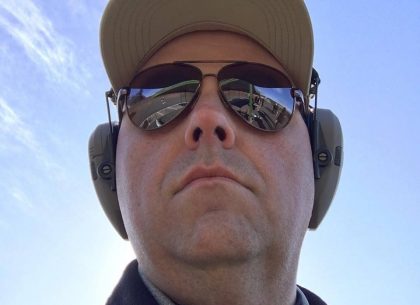
David Workman is an avid gun guy and a contributing writer to several major gun publications. As an NRA-certified instructor, David trains new shooters on basic handgun skills and CCW requirements and is a strong advocate for training as much as possible. “Real-life shootouts don’t happen at a box range.”
![]() You may also enjoy these popular articles:
You may also enjoy these popular articles:
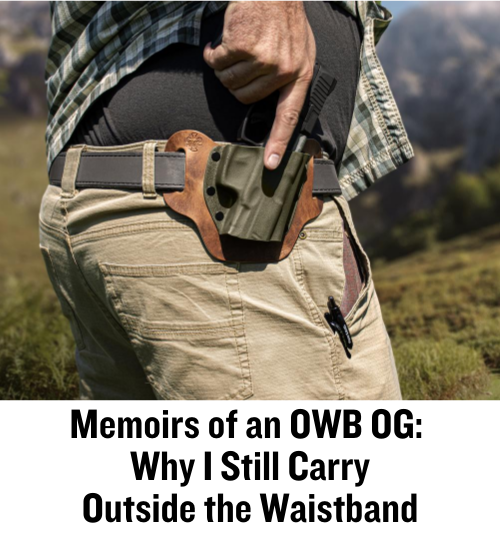
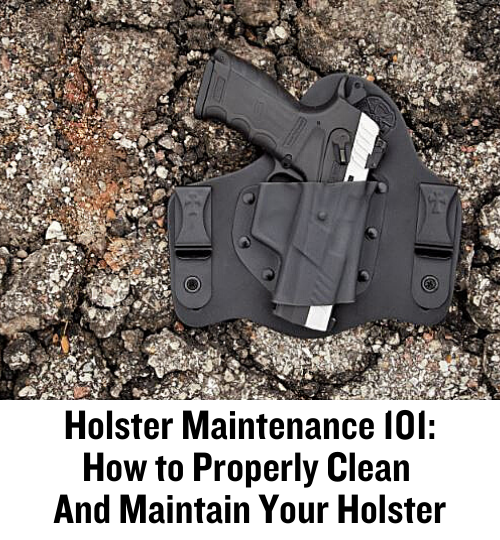
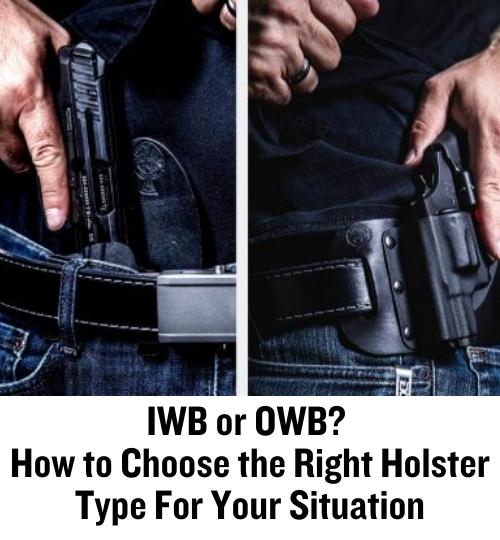
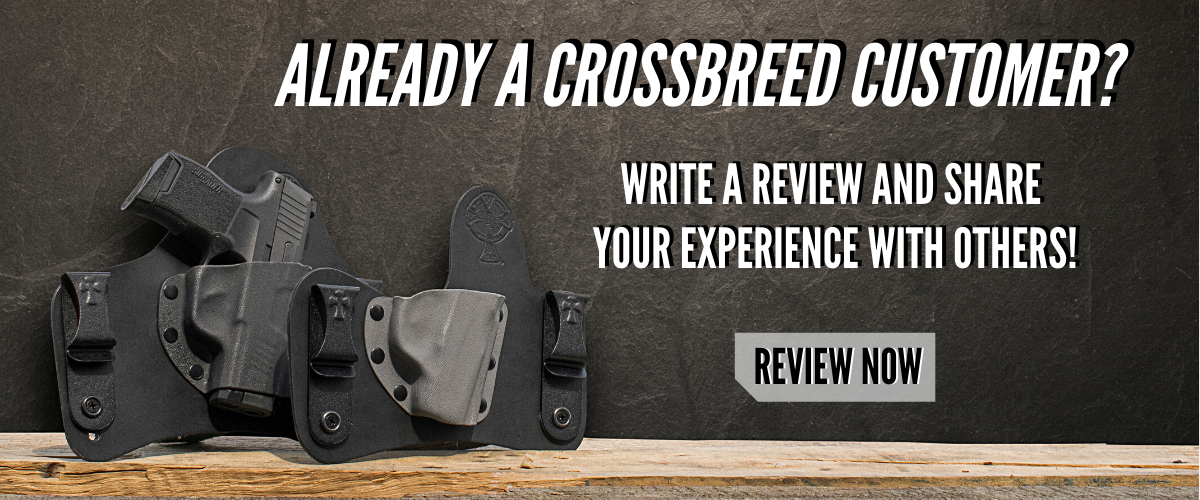
©MTC Holsters, LLC and CrossBreed Holsters Blog, 2021.
Unauthorized use and/or duplication of this material without express and written permission from this site’s author and/or owner is strictly prohibited. Excerpts and links may be used, provided that full and clear credit is given to David Workman and the CrossBreed Blog with appropriate and specific direction to the original content.
![]()

